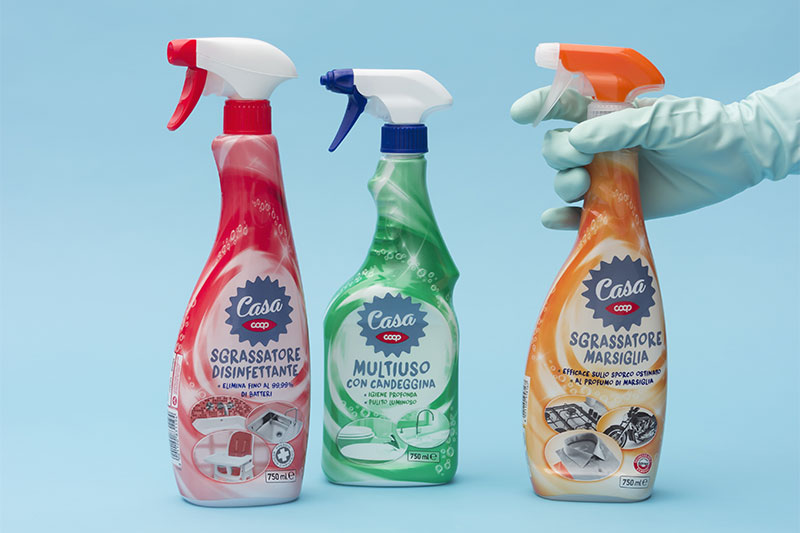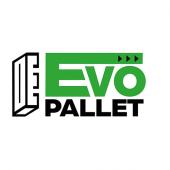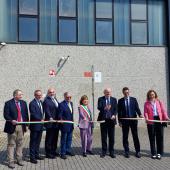From “nice to have” to “must have”: sustainability between supply chain and society
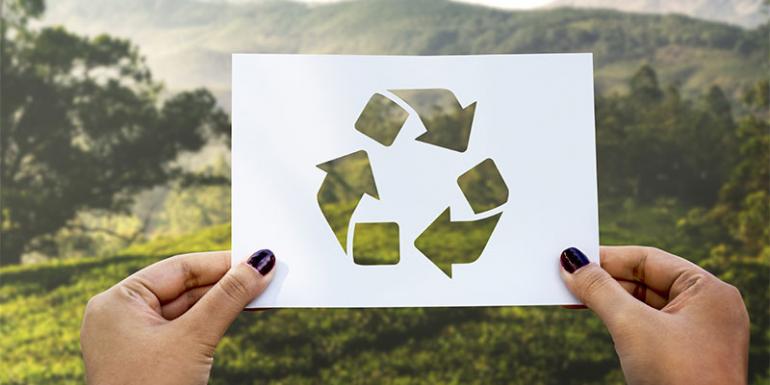
A word from Coop, Davines, Lavazza, Nestlè, Sanpellegrino
M. Costanza Candi, Luciana Guidotti
As part of the disclosure of issues related to sustainability in the world of packaging, the magazine ItaliaImballaggio and the Packmedia.net platform have for some time been paying close attention to the business choices made in this area by manufacturers of goods and manufacturers of packaging systems.
Together with the market players we are therefore discussing the strategic and ethical importance of sustainability, focusing on results and future achievements.
Following the worldwide trend to increasingly involve women in technical profiles, as advocated by the international movement Women In Tech, we aim to listen the vision of leading female actors who are playing a key role in combining innovation, technology and sustainability.
It is in this perspective that we asked some key figures in the management of green policies, what they think of the role of "carriers" of innovation and best practices with respect to the complex issue of sustainability and how this role is played by the companies in which they work.
Sales volumes, international markets, large and articulated supply networks on entire supply chains are in fact conditioned by those who are making sustainability a cornerstone of industrial strategy. By creating a virtuous circle between ecology, economics, consumer or supplier education, these companies in fact become, the protagonists of the green revolution based on a marketing that takes on an ethical value as well as an economic one.
Here are some excerpts from the statements made by the (female) managers we interviewed on the subject.

«We welcome the growing attention of consumers to the environment and, consequently, the demand for increasingly green products» declares Marta Schiraldi, Safety, Health, Environment and Sustainability Head of Gruppo Nestlé Italia. «We must realize that the planet is one and it belongs to everyone, so each of us can and must contribute to its protection, even with small daily gestures such as, for example, the proper separation of waste.
We want to act positively by working on awareness; the path of innovation must include substantial issues such as, for example, attention to quality and food safety, which in our great challenge, must remain unchanged while making sustainable choices. Consumers are increasingly demanding greater activism from companies, starting with the product.
That’s why we have developed “Where do I throw it?”, a digital platform created to provide concrete support to consumers, educating them on the correct way to dispose of the different materials that make up the packaging of Nestlé products, according to the regulations in force in the various Italian municipalities.
In this way, we provide a solution to better differentiate waste, using the scanning of the barcode on the packaging. If we think about it, until a few years ago it would have been unthinkable to propose the use of such a tool, precisely because environmental awareness was less developed. This too is a sign of the times, which makes us look to the future with optimism.
The Nestlé project is open to other brands and partners, precisely in order to extend the effectiveness of sustainability action. Well-known names, such as Lactalis, have already taken up the common challenge and are participating with their products in the app, thus supporting the effectiveness of mindful end-of-life management, with the active support of Nestlé».
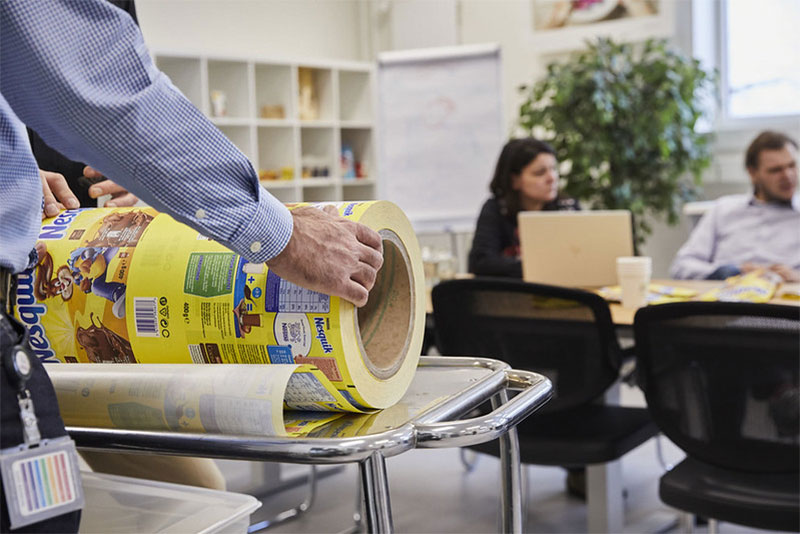
Remaining in the world of Food & Beverage, the incisiveness of the action is also strong in another company of the Nestlè Group, the historic brand Sanpellegrino where Fabiana Marchini, Head of Sustainability, says:

«There is a strong ethical correspondence in our way of doing sustainability. For Sanpellegrino it means taking care of the territory in which it operates, giving value to the communities, with actions related to the protection of natural heritage, developing plans that allow us to achieve production efficiency and energy saving. We are therefore talking about hybrid savings, eco-sustainable logistics, territorial projects in partnership: all examples of what it means to do sustainability through the reduction of packaging or the path of innovation with R&D, in favor of natural capital, which is our wealth.
On the new lifestyles front, we are active in promoting the relationship between health and sustainability. These themes are linked to recycling education, for example, because although consumers are evolving, they need clear suggestions about possible solutions to orient themselves.
With Levissima’s Regeneration program, we educate people about recycling and segregated waste collection, but we also focus attention on other things. I’m thinking of the Levissima fitness area in Milan’s Sempione Park, which we helped restore and requalify, where we combine green issues with a healthy lifestyle, recalling an essential aspect linked to our “water” product, namely proper hydration.
Through the Sanpellegrino Observatory, we are also engaged in an articulated program to promote the benefits of proper hydration. With “Water School”, we teach children the importance of healthy drinking and the need to recycle packaging, thus combining the idea of a sustainable future with consistent and healthy lifestyles.
Returning to the valorization of the territories in which we operate, and our commitment to the valorization of sources and water, last November we obtained AWS (Alliance for Water Stewardship) certification, which attests to the sustainable and shared management of water resources and testifies to what we are committed to doing, with a view to progressively reducing the amount of water we use. The group aims to certify all its plants by 2025. A decision that demonstrates how essential we believe it is to manage water responsibly.
Biodiversity is also an area of commitment for us. With Acqua Panna, for example, we have started a collaboration with Federparchi to enhance the territory of the Panna Reserve thanks to a census of the fauna and flora present in the areas where we operate.
This commitment demonstrates how much we care about the natural capital that we manage, also through the creation of an extraordinary team, which I have the pleasure of coordinating. Another example that shows how Sanpellegrino’s approach is systemic; the expression of a vision that comes from afar, in respecting water, in doing things that anticipate the needs of the consumer, in choosing eco-sustainable and light logistics, in using energy from 100% renewable sources in our factories, where we have a very low factory impact in terms of emissions».
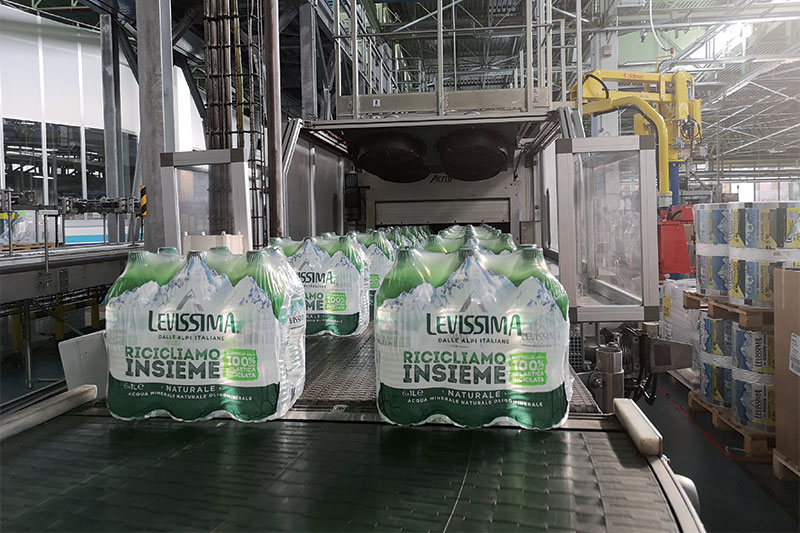
Sustainability is a concept that cuts across different markets. In the beauty sector, for example, there are companies like Davines that place this issue at the center of their actions at all levels, from the involvement of the territory and its economic fabric to the active participation of suppliers and clients in their actions, acting in a systemic logic that is the basis of circularity and greenness.
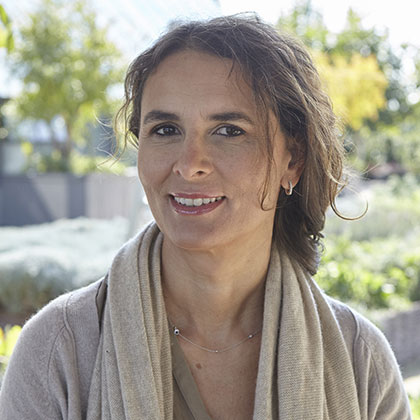
«It’s clear that Davines works as a system on every possible occasion» says Sonia Ziveri, Chief Sustainability Officer of Davines SpA. «Our President, Davide Bollati, is very active in the city and, with Parma Io Ci Sto, has contributed to the dream of Parma as Capital of Culture, pushing for the candidacy of Green Capital 2022. A goal that has been missed, for now, but which has shown how companies, the administration and other stakeholders can work together for the common good. Working with other companies, Davide Bollati launched the idea of kilometroverdeparma, which then became a Consortium, under the coordination of Maria Paola Chiesi of Chiesi Farmaceutici, which is also a B Corp. This group aims to create a tree barrier that will curb fine dust and reduce the impact of the highway along the stretch that runs in front of the companies. An initiative that has already set the standard, leading to the adhesion of other companies, which have created new planting areas, compared to the original kilometroverdeparma.
Also by Davide Bollati is the idea of the Alliance for Carbon Neutrality of the Province of Parma. In this case, the Municipality and Province of Parma, I Parchi del Ducato and the Emilia-Romagna Region join forces with the University of Parma and Unione Industriale to measure emissions and define a reduction strategy, carrying out offsetting actions.
A philosophy based on teamwork, which also includes the 6 countries where Davines has branches: London, Paris, New York, Deventer in the Netherlands, Hong Kong and Mexico City, where the involvement in the territory is strong even where there are only representatives: the common key is the sharing of values and approach».
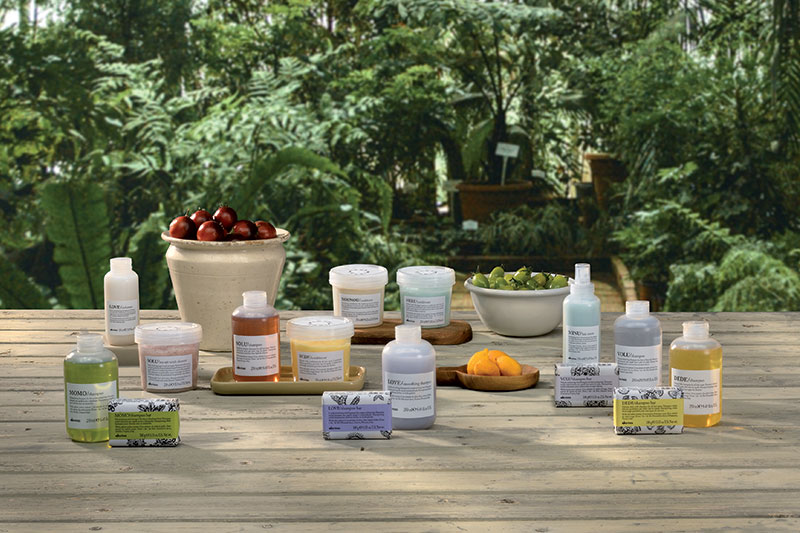
Returning to the world of food and beverage, here is the voice of a historic brand of the sector, Lavazza Group, where Francesca Squillace, plays the role of Packaging and Materials Director.
«Recently, our CEO spoke about the guiding principles towards a sustainable future, which are embodied in the Roadmap to Zero. This is a gradual path undertaken by Lavazza with an ambitious goal: by 2030, the impact of CO2 emissions generated along the Group’s supply chain will be totally reduced to zero. This principle must be extended to all activities.
Therefore, from the point of view of R&D our commitment is to design green packaging, respecting first and foremost the safety of the consumer, i.e. using food grade materials in the design phase and, subsequently, monitoring the products intended for consumption, until the end of their shelf-life».
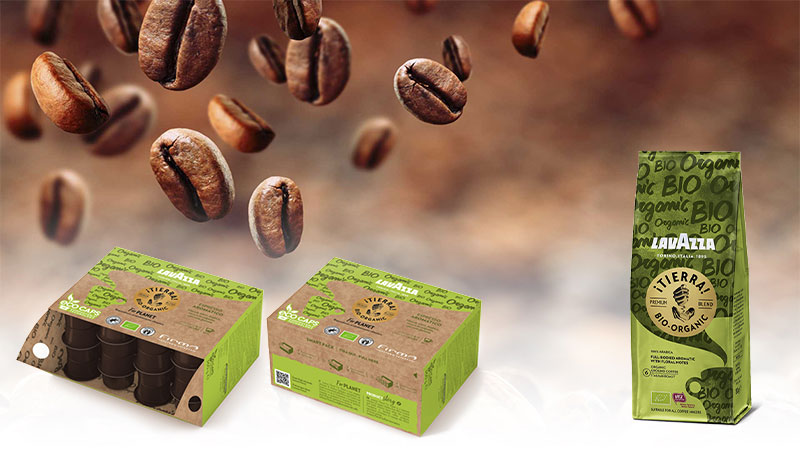
The circle is closed by a big player of the largescale retail trade that, thanks to a longterm strategy, has today the ability to influence in a green direction the whole chain that starts from the producer and arrives to the consumer, passing through packaging and communication. Here's what Chiara Faenza, Sustainability and Innovation Values manager Coop, thinks about it.

«For Coop, packaging and product sustainability are a unicum, where the dialogue between consumers, large-scale retail trade and the market is constant, involving environmental protection, respect for the territory, safety, and sociality, to the point of composing a virtuous circle that describes the new lifestyles and consumption driven by the large players, which are in turn conditioned by them, and not just for now
I can remember actions that, in the early '80s, promoted the collection of plastic shoppers, which we already then saw as an element not to be dispersed in the environment. In the 1990s we did a campaign on the proper collection of waste and packaging, at a time when, for both examples, no legislation or even public opinion, called for something similar.
Much more recently, in 2021, we installed Seabins. These are garbage baskets used as floating collectors, placed in the waters of rivers and lakes in Italy. The placement took place during public events, which involved members and institutions in moments of awareness, designed as real actions on the territory. With the sponsorship of the 2019 Jova Beach Tour, we launched the 30% recyclable bottles that were collected by volunteers during the 17 concerts and then used to make T-shirts. Finally, we should not forget the 100% recyclable bottle, which we have on the shelf with two references, natural and sparkling water, which we can make today thanks to the legislation modified in the last year.
In 2018 we joined the Pledge Campaign within the Plastic Strategy of the European Commission: we are the only Italian player among the first 107 signatories of the Circular Plastic Alliance: today we are 293.
The role of Ambassador of the Ethical Packaging Charter also goes in this direction and we consider it both a starting point and an arrival point. On the other hand, our dissemination activity has not been "a straight line", but a circle, which goes back on itself, reproducing the logic of infinite circularity at the basis of sustainability. For us, adhering to the concepts of the Ethical Charter means networking, creating synergies and medium and long term relationships, certainly not "hit and run": a style that has always belonged to Coop and that shows the full sharing of the concepts expressed by the authors of the Charter and the Foundation that promotes it. In short, sustainability in the round, from the content to the container, which should not be separated but must be bearers of the same values».
